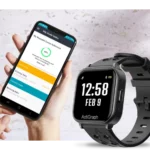As one of the biggest research area, oncology remains the focus of the clinical trials pipeline, comprising 44% of the 2,143 trials that started in 2023.
While the clinical development productivity rebounded in 2022 and 2023, reversing for the first time a 10-year downward trend, oncology trials consistently had among the lowest productivity rates across the last 10 years. This is essentially due to higher complexity and duration than in other therapeutic areas, and various factors including the number of patients, the multiplicity of eligibility criteria and the rising number of endpoints, contribute to the significant complexity of oncology clinical trials.
This sustains the very important need for clinical stakeholders to envision ways and strategies to increase oncology trials efficiencies. These strategies include novel designs, inclusion of decentralized elements, as well as applying smart and strict approaches for selecting clinical trial endpoints. As the time has come to defining relevant endpoints and focusing on the ones that matter most to patients, wouldn’t capturing the symptoms and feelings that contribute to measuring pertinent endpoints be relevant? And shouldn’t this be perceived as a suitable strategy to increase clinical trials productivity?
Why collecting Patient Reported Outcomes (PRO) data in oncology clinical trials?
It has been decades that patient symptoms and feelings have been collected via PROs, but data reported directly by patients about how they feel and function generally inform exploratory endpoints in cancer trials, and are rarely included in oncology drug labeling in the United States.
Indeed, PRO endpoints can be an afterthought in the design of cancer clinical trials, and their value is underestimated as compared to endpoints related to survival, imaging, and biomarkers.
However, there is an increasing realization that expanding the patient’s voice and obtaining a patient self-reported, accurate measurement of how they feel and function can provide key additional information to assess the benefits and risks of newly developed cancer therapies.
- Cancer drugs often carry substantial toxicities that may affect how people feel and function, and including information on patient symptoms and function in cancer clinical trials is key to characterize the safety profile of the drug. This may lead to stronger safety profile characterization which will have a positive impact on clinical trial efficiency.
- Although necessary to evaluate the progression of disease, radiographic or biomarker-related endpoints can be of questionable clinical relevance, and patient perception of their own health, feelings and quality of life should not be undermined in the assessment of the disease burden.
- Patients themselves report that they don’t understand “how the FDA can evaluate the potential benefits and harms of cancer drugs that are toxic, with survival benefits measured only in days or weeks, without a comprehensive understanding of patient experiences elicited through PROs’’
- While oncology clinical trials cannot always be carried out in a comparative setting, which hinder interpretation of PRO findings, recent publication emphasizes the value of including PRO in cancer trials and describes how PROs can complement commonly collected data to inform dose selection. Again, saving time and enhancing accuracy in dose selection may only be beneficial to clinical development success.
- As PROs can be included in early phase clinical trials, they not only allow to start and collect patient’s focus meaningful outcomes during these early trials, but they can help with the selection of most appropriate endpoints and PRO instruments for future trials, which has the potential to enhance clinical trials productivity.
In addition to this value, a framework now exists to safely incorporate PRO data in cancer trials and make the most of them.
Which framework for PRO data collection in clinical trials settings?
To properly collect data that is meaningful to patients, appropriate measures and scales must exist, be made available to patients, and be usable in a safe regulatory environment.
- A significant number of validated scales have demonstrated pertinence and validity in oncology trials. On top of the well-recognized European Organization for Research and Treatment of Cancer (EORTC) and Functional Assessment of Cancer Therapy (FACT) scales that are sensitive, very frequently used scales, the PRO version of the CTCAE (PRO-CTCAE) is widely used for the description of symptomatic adverse events, and the Patient Reported Outcomes Measurement Information System (PROMIS) for physical function assessments. These measures both contain a library of items and questions, a subset of which can be selected to fit the side effect profile of the therapy and the baseline functional status of the population.
- Numerous validated scales can be used also to characterize more precisely the symptoms of specific cancers, which have the potential to enhance accuracy and reinforce the focus of the research on meaningful endpoints for the patient population suffering from these diseases.
- Very importantly, a regulatory framework has been established in the last years. Acknowledging the potential added value that incorporating PRO measurement of symptoms and functional impacts has into the benefit/risk assessment of new drugs, FDA and EMA generated solid grants supporting the integration of PROs in oncology clinical trials.
- An operational framework is also in place to support the collection of PRO data: More than two decades experience and significant body of evidence confirm the value of electronic PRO data collection methods to provide high quality, reliable data. Current technology capabilities, combined with the significant experience gained implementing a very wide range of PRO measures on numerous electronic systems are reflected in the recently published best practices that provide a definitive reference for user-friendly ePRO implementations that capture robust data.
Based on such evidence, there seems to be no barrier left to incorporate cautiously selected PROs in cancer clinical trials.
Patient-Reported Outcome instruments should be considered as more direct assessments of treatment benefit than many other endpoints. There is a significant body of evidence of the scientific and medical value of PRO data, and the various oncology scales, ranging from generic to much more specific, symptomatic scales. The regulatory framework to guide their use is in place, and the nowadays technology eases the collection and enhances the quality of the data they generate. However, only 18% of oncology interventional clinical trials include one or more clinical Outcome Assessment (COA) measures. How long will barriers to bringing the patient perspective into oncology drug development last?














